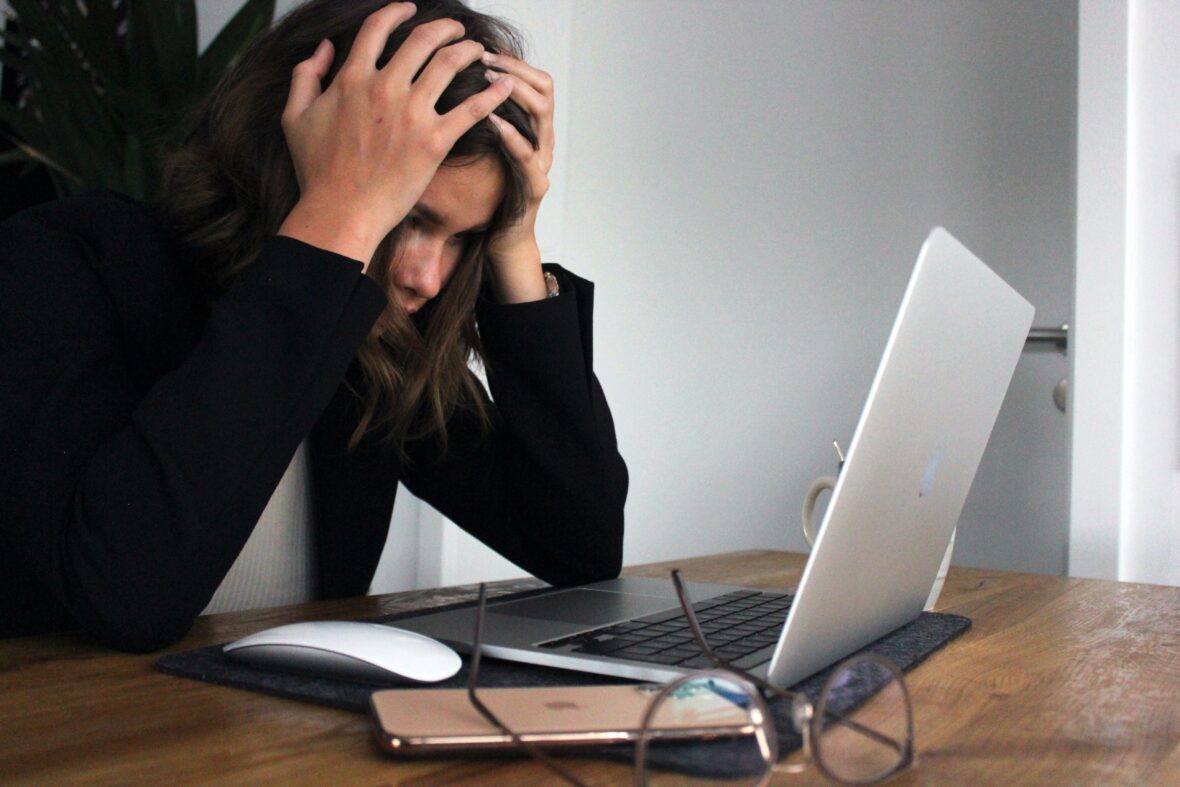World Health Organisation defines stress as a “state of mental tension caused by a difficult situation.” However, the term ‘stress’ is very subjective, and there is no one definition of stress that is accepted by everyone.
We may face hindrances in our day-to-day lives that can be overwhelming to adapt to. This results in strong emotions that can have negative impacts on our mental as well as physiological health. A study carried out by The American Institute of Stress shows that about 77 percent of people have endured negative physical impacts of stress, with 48 percent stating they have trouble sleeping.
Stress can impact anyone, regardless of age, sex, ethnicity, etc, but there are certain groups of people that are more vulnerable to it, including; ethnic minorities, individuals responsible for their families, single parents, and women.
If stress remains unrelieved, it can be damaging to our health. To combat the physical and mental effects of stress, professionals recommend several lifestyle changes. Keeping this in mind, we have included the following topics to help you learn more about the causes and consequences of stress on our body, and how to actually deal with it.
CAUSES OF STRESS
Stress is a global issue. However, it varies from person to person, and some people show more sensitivity to stress than others. What may be stressful for person ‘A’ may not impact person ‘B’ at all.
Studies have shown that certain genes carry anxiety traits, making the person prone to chronic stress. However, environmental factors also play a pivotal role in determining our emotional reactions to change and how well and quickly we can adapt to them.
Stress is caused by a variety of issues, which includes-
- Work
- Financial instability
- Health issues
- Family responsibilities
- Personal relationships
- Traumatic experiences
- Personal safety issues, etc.
HOW STRESS IMPACTS THE BODY
A stressed person finds it hard to relax and faces difficulty in concentrating on tasks. Continuous stress can adversely impact the body and it may start affecting our day-to-day functioning and aggravate our restlessness. Aside from its mental impacts, it also exacerbates our bodily functions.
Stress is natural, and short-term stress can even be beneficial for us and serve as a motivating factor. But if the stress continues to persist, it can lead to depression, irritability, insomnia, etc.
Some physiological symptoms of stress include-
● DIGESTIVE ISSUES
The body has a harder time recovering from the continual stress response. This contributes to irritable bowel movement syndrome and causes an upset stomach and stomach aches. The digestive system has a hard time functioning properly. This further leads to heartburn and nausea.
● POUNDING HEART
Hormones released due to stress increase the heartbeat. Heart palpitations though usually harmless, can be worrisome.
● INCREASED RISK OF HEART ATTACK
Persistent stress can lead to high blood pressure, which increases the risk of having a heart attack or a stroke. An increased heart rate and blood pressure can damage the arteries.
● HIGH BLOOD SUGAR
If stress does not go away, it can cause the liver to release more glucose into our blood, which consequently puts us at a higher risk of diabetes.
● TENSED MUSCLES AND MUSCLE ACHES
When we are experiencing stress, our muscles tense up as a response to the stress triggers, but they release the tension once the stressful moment passes away. But with continuous stress, our body tends to remain in this constant state, which causes tension to build up over time. This leads to migraines, and chronic muscle tension in the neck, shoulders, lower back, etc.
Aside from the above-mentioned symptoms, a stressed person may also-
- Sleep too less or too little
- Lose interest in activities previously enjoyed
- Gain or lose noticeable weight
- Isolate themselves and limit social interaction, etc
HOW TO DEAL WITH STRESS
If you suspect that you might have a stress-related disorder, it is best that you get it checked out with a medical professional immediately. Depending upon where you have physical or mental health-related issues, you can consult a physician or a mental health expert respectively.
Stress treatment can do wonders and help an individual cope with stress in a healthy and productive way. The best way to deal with stress is to target the root cause of stress first, rather than the symptoms.
Here are some practices you can inculcate in your daily life to deal with stress-
● FOCUS ON PHYSICAL EXERCISE AND GOOD NUTRITION
It has been proven that regular physical exercise can help one release stress. Physical activities release endorphins in the body, which can improve our sense of well-being. You don’t have to start with vigorous exercises right from the beginning. Taking small steps will help you see great results over time. Daily physical activities can also help deal with sleeping problems.
You should start small and make it a habit to get in at least some form of physical exercise daily. You can increase the time limit as you start to get used to it.
A well-balanced diet will provide energy to cope with stressful situations and stabilize our mood.
● MANAGE TIME AND BALANCE PERSONAL AND PROFESSIONAL LIFE
Good time management skills can help you get tasks done on time and help deal with procrastination. A good balance between personal and professional life will help you enjoy leisure time and pursue interests outside of work, thus, lessening the negative impacts of stress.
● PRACTICE MEDITATION AND DEEP BREATHING
Meditation helps calm down restless thoughts and leads to a serene mindset. A study showed that participants reported about a 31 percent decrease in stress levels due to meditation
As you sit in silence with your thoughts, you can lessen your body’s stress response. This will provide you with the much-needed mental clarity and help you organize your thoughts. Guided meditations are also helpful if you find it hard to sit in silence with your thoughts.
Deep breathing helps calm the nervous system and leads to lowered blood pressure, lower heart rate, and reduced stress levels, thus, relieving your stress.
● LIMIT SOCIAL MEDIA, ALCOHOL, AND OTHER STIMULANTS
Spending too much time on social media can cause FOMO (Fear of Missing Out). Because of this, you may be frequently distracted by what’s going on your social media account, rather than your physical surroundings.
Alcohol, cigarettes, nicotine, etc may serve as temporary distractions but have terrible impacts on one’s health in the long run. It is good if you limit their consumption and focus on more healthy alternatives.
ENDNOTE
Stress is normal, but prolonged symptoms of stress can immensely impact our mental and physical health negatively. Having a daily routine and sticking to it can help us deal with daily challenges more efficiently. You can also connect with people around you and start spending more time with family and friends as it can be very therapeutic.
Though there is no specific treatment for stress, you can always implement relaxation and coping techniques in your daily life, and see what works for you the best.
If symptoms continue to persist, it is best if you turn to psychotherapy and medication, after consulting with a medical practitioner.




